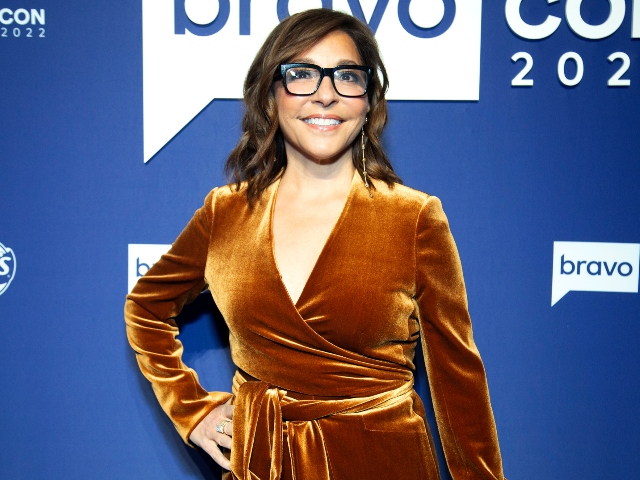Elon Musk recently appointed Linda Yaccarino as the new CEO of Twitter, but at a conference in April, Yaccarino grilled Musk on his tweets and content moderation policies on Twitter, providing insight into how she sees the platform. Yaccarino stated that advertisers should have a greater hand in shaping the platform’s policies, explaining: “Product development, ad safety, content moderation — that’s what the influence is.”
AP News reports that before Elon Musk has named Linda Yaccarino, a seasoned NBC Universal advertising executive and a former chair at the World Economic Forum, the two engaged in a spirited debate about the platform’s future. Yaccarino, true to her advertising roots, argued that advertisers need to have a greater level of influence on Twitter’s policies, which would likely involve self-proclaimed “free speech absolutist” Musk bending the knee to woke corporations with deep advertising pockets.
A conversation between Elon and Twitter’s new CEO.
Presented without comment.pic.twitter.com/cEzgOWlW6S
— Spike Cohen (@RealSpikeCohen) May 12, 2023
Yaccarino, who gained recognition for her work at NBCU in digitizing ad sales, is entering a challenging environment. Her primary responsibility will be to mend fences with advertisers who have left Twitter as a result of Musk’s aggressive restructuring of the business. Yaccarino is also known for her work with the World Economic Forum (WEF), which itself adds mystery to her appointment as Musk has publicly stated his distaste for the organization.
How do you tweet stuff like this and then turn around and appoint a WEF official as the CEO of Twitter at the same time? What kind of fuckery is this? pic.twitter.com/MUC8H6r0Rx
— illuminatibot (@iluminatibot) May 14, 2023
Since the high-profile acquisition, Musk has made significant changes to the platform’s operations, including mass employee layoffs and a sharp reduction in the trust-and-safety team in charge of content moderation. Additionally, he has been outspoken in his criticism of traditional media outlets, claiming that they have exaggerated Twitter’s issues in order to protect their own share of advertising revenue.
At a marketing convention in April hosted at Miami Beach, Florida, the difference between Musk and Yaccarino’s viewpoints relating to Twitter’s moderation became apparent. Yaccarino and Musk took turns on stage for a lively debate that touched on some of the most divisive topics related to Twitter’s current course.
Yaccarino brought up the topic of content moderation and leftists’ mounting worries about the spread of extremism and hate speech since Musk took control of the platform during their conversation. “Product development, ad safety, content moderation — that’s what the influence is,” Yaccarino stated, suggesting that giving advertisers a say in shaping Twitter’s policies could attract more investment.
Musk, however, remained steadfast in his vision and reaffirmed the platform’s dedication to free speech. “It’s totally cool to say that you want to have your advertising appear in certain places in Twitter and not in other places, but it is not cool to try to say what Twitter will do. And if that means losing advertising dollars, we lose it. But freedom of speech is paramount,” he insisted.
Yaccarino also asked Musk if the company would revive its “influence council,” a once-regular gathering of marketing executives from a number of Twitter’s top advertisers. Again, Musk voiced his concerns, saying that such a move might spark public backlash. “Because if the public thinks that their views are being determined by, you know, a small number of (marketing executives) in America, they will be, I think, upset about that,” he stated.
Musk acknowledged the need for a balance, however, and suggested a “sensible middle ground” that would guarantee the general public “has a voice” while advertisers concentrated on the routine work of increasing sales and enhancing their brand perception.
Musk’s own tweeting habits, which have caused controversy in the past, were another topic of discussion. Musk defended a new policy known as “freedom of speech but not freedom of reach,” which aims to reduce the exposure of tweets through shadowbanning without completely removing the offending tweets. Musk acknowledged that this rule did in fact apply to his own tweets when asked if it did.
Seizing the chance, Yaccarino asked Musk if he would agree to “be more specific and not tweet after 3:00 a.m.” in a reference to Musk’s propensity for sending out contentious tweets early in the morning. Musk responded in a lighthearted manner, saying, “I will aspire to tweet less after 3:00 a.m.”
Read more at AP News here.
Lucas Nolan is a reporter for Breitbart News covering issues of free speech and online censorship. Follow him on Twitter @LucasNolan
usechatgpt init success
usechatgpt init success



